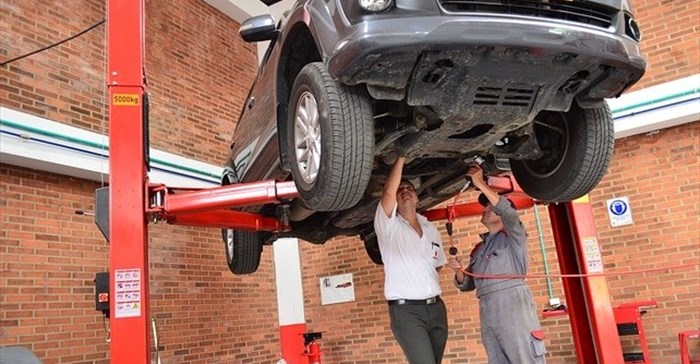
Top stories




Energy & MiningGlencore's Astron Energy gears up with new tanker amidst Sars dispute
Wendell Roelf 16 hours


More news



















Logistics & Transport
Uganda plans new rail link to Tanzania for mineral export boost







Les Mc Master, chairman of the Motor Industry Workshop Association (MIWA), says this complaint crops up from time to time and for the large part is a perception. “Repeat business is essential for repair workshops so breaking a customer’s trust through switching parts doesn’t make good business sense, besides the fact that it is a criminal act. Having said that, there have been instances where workers have stolen or exchanged parts in the workshop without the owner or management’s knowledge. This is punishable with summary dismissal and charges of theft.”
Looking at the battery switch example, Mc Master explains that customers need to understand that there may be times when a vehicle has been in the workshop for a while and the lights or other power consumables have been left on. In such cases, the battery can discharge. “This, on an old battery, causes the regeneration of the charge state to fail and the battery has to be replaced. The workshop will then contact the customer to replace the battery.”
So how do car owners guard against this threat? Should they be marking items that could be stolen in their vehicles? Mc Master says doing this secretly, affects the trust between the customer and the business and could tarnish the relationship.
He suggests that when booking the vehicle into the workshop for a service or repairs, have it mentioned on the job card and booking-in sheet that the battery, tools, jack and spare wheel are marked for your and the workshop’s benefit. “Being upfront about it does no harm,” he says.
He adds that it is also essential to remove all valuables and loose items from the vehicle such as cell phone car chargers and the like. “We’ve found, on many occasions, valuables in cars and I’m talking about Rolex watches, large sums of money in plastic bags, rings and so on. Remove the temptation,” he says.

The best way, however, to guard against part switching is to use a reputable and accredited workshop. “Using an accredited workshop means, firstly, that balances and checks are in place to ensure a level of customer service is adhered to. Secondly, it means that the workshop can and will be held accountable by the accrediting body. MIWA, for example, has an Ethics committee that deals with workshops that are suspected of fraudulent activity. Customers have a go-to channel with complaints and can be assured of a resolution.”
If you find yourself in the situation where you feel a part has been switched without your consent, Mc Master says it’s important to speak up immediately so that the workshop owner knows and understands your concerns. “In many instances, the issue can be resolved through a frank discussion. If found to be substantiated, lay a criminal charge or insist that the owner does. Either way, the perpetrator must be brought to book,” he concludes.